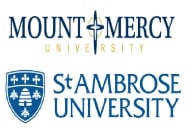You have /5 articles left.
Sign up for a free account or log in.
WASHINGTON --The U.S. Supreme Court on Monday rejected an appeal by the University of Wisconsin at Madison of a federal appeals court ruling that could require many public colleges and universities to permit the use of student fee money to pay for explicitly religious activities, including those involving prayer.
A coalition of higher education groups backed Madison in the case and urged the Supreme Court to take the case, arguing without success that the lower court's decision intruded on reasonable university rules designed to protect the separation of church and state. By rejecting the appeal, the Supreme Court does not endorse the lower court's ruling, but ensures that it remains in effect in the states covered by the U.S. Court of Appeals for the Seventh Circuit -- Illinois, Indiana and Wisconsin.
A 2-to-1 ruling by the appeals court in that circuit last year took away the right of Wisconsin, and potentially other public colleges and universities, to support some student activities while denying funds to organizations for worship services, proselytizing, or other activities that explicitly involve the practice of religion. Wisconsin's rules permitted the funding of many activities organized and run by religious student groups. But the rules barred activities related to prayer or proselytizing. Among the activities that Wisconsin told a Roman Catholic group could not be financed (leading to the litigation) were summer training camps with Roman Catholic Masses, a program to bring nuns to campus to help students determine if they have the calling to be priests, and the distribution of Rosary booklets.
The majority opinion from the appeals court said that once a state university supports student activities that involve leadership development or counseling, it can't exclude some activities simply because they are religious in nature. Wisconsin's appeal, with backing from the American Council on Education and other higher education groups, said that public universities make distinctions all the time, based on legitimate educational needs, and that the appeals court endangered the independence of such determinations. Many public colleges and universities have policies on student fees that are similar to those at Madison.
In theory, a state university that didn't want to provide student fee funds to support activities related to prayer could scale back or eliminate its student activities, but that is unlikely. Most state universities have large and complicated systems for funding student groups -- and depend on these groups to provide events and clubs for students.
A recent dispute at Indiana University at Bloomington illustrates the way public universities in the Seventh Circuit may have to change their policies. The Alliance Defense Fund -- the legal group that helped the Catholic student group at Madison -- complained to Indiana about student activities rules that barred support for religious groups that engaged in proselytizing or sectarian activities. The complaint focused on the rejection by Indiana of a request by a Christian group for support to send members to a national conference, where Indiana had determined the programming would violate university rules for receiving student fees.
In a December letter to Indiana, the Alliance Defense Fund cited the appeals court ruling on Madison to demand that Indiana change its standards -- and in February the university amended its rules, removing the limits on religious activities eligible for student fees.
The Alliance Defense Fund praised the decision of the Supreme Court not to intervene in the Wisconsin case. "The constitutional rights of Christian student organizations should be recognized by university officials just as they recognize those rights for other student groups," said Jordan Lorence, senior counsel.
Ada Meloy, general counsel for the American Council on Education, said she was "disappointed" that the Supreme Court declined to consider an appeal. She said she continues to believe that the appeals court decision was incorrect, even if it is "now the law of the land" in the Seventh Circuit. Meloy said that public colleges and universities in that region would probably come up with a range of ways to comply with the ruling.
She added that the ruling "is not binding in areas other than the Seventh Circuit."








